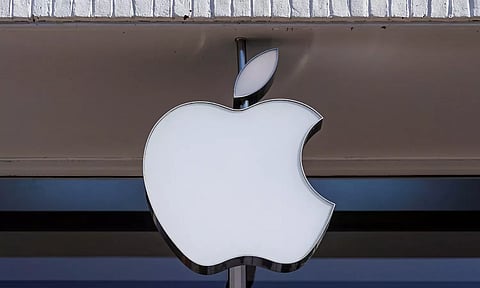

The developments of the past few days with regard to the umpteenth iteration of snoopgate — this time to do with a warning from Apple on ‘state sponsored attacks’ carried out on the smartphones of opposition leaders was a prescient throwback to the opening paragraphs of George Orwell’s prescient dystopian nightmare 1984. As we are introduced to our protagonist Winston Smith, we are told that, “There was of course no way of knowing whether you were being watched at any given moment. How often, or on what system, the Thought Police plugged in on any individual wire was guesswork. It was even conceivable that they watched everybody all the time.”
Winston’s fears were realised by his antecedents like Congress chief Mallikarjun Kharge, and party leaders like Shashi Tharoor, Pawan Khera, KC Venugopal, TMC MP Mahua Moitra and some aides of Rahul Gandhi who received a notification warning them of targeted attacks on their iPhones, aimed at hacking their devices. IT Minister Ashwini Vaishnaw rejected these claims, assuring that a thorough probe would be initiated. Apple, on its end, said it does not attribute the threat notifications to any specific State-sponsored attackers and that it cannot provide data on what causes such alerts. For all we know, it could be a false alarm.
This recurrence of the Peeping Tom behaviour is not new to India, a nation that is headed for elections next year. In 2021, there was the Pegasus scandal, involving a spyware tool developed by the Israel based NSO Group, which offered the programme to the governments of various countries that deployed it against leaders in the opposition, as well as intellectuals, thought leaders, journalists and dissidents. An independent consortium later discovered close to 40 correspondents, ministers and other officials in India were the subject of surveillance employed via Pegasus. The case was closed sans convictions in the absence of conclusive evidence linking the spyware software with the phones of the affected.
We should have abandoned any trace of shock on the misuse of our personal data or state-sponsored snooping in the aftermath of the Edward Snowden revelations. In 2013, the subcontractor with the National Security Agency (NSA) turned into a whistleblower as he leaked classified information pertaining to numerous global surveillance programs. Many such initiatives were led by the NSA and the Five Eyes intelligence alliance with the cooperation of telecom firms and European governments. Snowden was branded an enemy of the state and sought refuge in Russia, but his actions catalysed a discourse on national security and individual privacy.
Ironic, one would say, as five years ago, in a global first, Australia passed anti-encryption legislation to compel tech firms and service providers to build systems that permitted law enforcement agencies backdoor or secret access to messages on platforms like WhatsApp – in the form of push notifications that download malware to a target’s computer or phone. This was in line with its pursuit of ‘dangerous and controversial’ powers to crack encrypted communications. In May this year, Spain also expressed its keenness to ban end-to-end encryption. The leaked government documents accessed by Wired magazine said that in response to an EU proposal to scan private messages for illegal material, Madrid’s officials said it was imperative that it had access to the data. Still surprised about snooping?